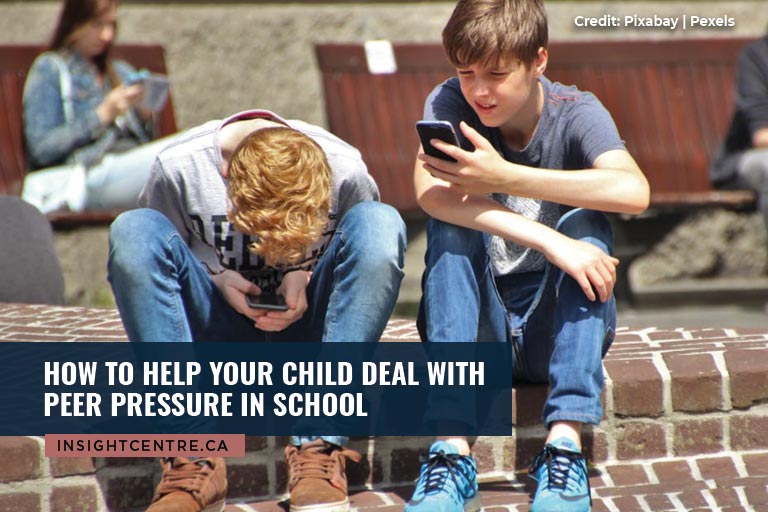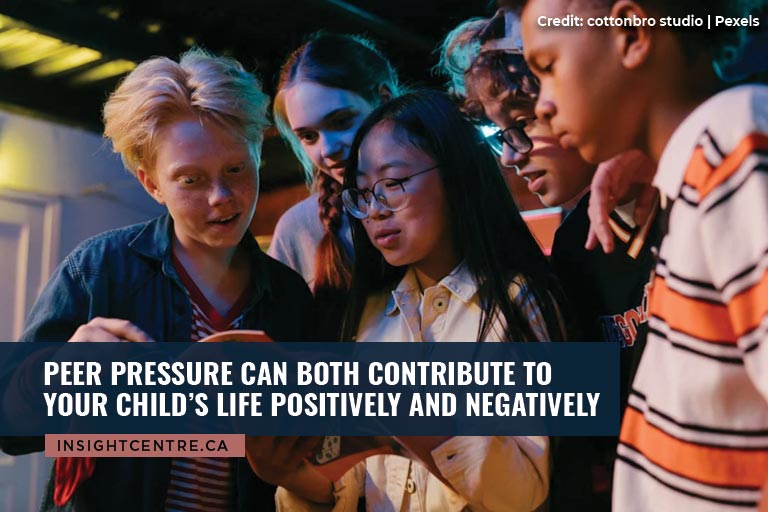
The schoolyard isn’t always sunshine and rainbows. As your child interacts with others, they’ll inevitably encounter peer pressure. It’s natural for children to want to be accepted by their peers, and sometimes, giving in to pressure seems like the easiest path. However, as a parent, your role is to equip your child with the tools to know when and how to resist peer pressure and make healthy choices. This article will equip you with the tools to do just that.

Peer pressure is the influence exerted by peers to change your child’s attitudes, values, or behaviour. It’s a normal part of social development, especially during pre-teen and teenage years when the desire to fit in is strong.
There are two main types of peer pressure:
This encourages your child to participate in positive activities like joining the school sports team or volunteering for a local cause.
This pushes your child towards potentially harmful behaviours like:
Friends might try to convince your child to ditch school to hang out, go to the movies, or simply stay home.
A study shows that one of the strongest predictors of substance abuse among youth is negative school experiences. This combined with peer pressure might spur your child to smoke cigarettes, try drugs, or drink alcohol.
Friends might convince your child to cheat on a test, lie to a teacher, or steal something.
Other kids might encourage your child to participate in online harassment or social exclusion.
Friends might pressure your child to engage in risky activities or put excessive pressure on themselves academically.
Remember: peer pressure isn’t always overt. Sometimes, subtle cues like teasing or exclusion can be just as powerful.

Pay close attention to your child’s behaviour. Here are some red flags:
The good news is there are ways to equip your child to deal with peer pressure effectively. Here are some strategies you can implement:
Create a safe space for open communication. Encourage your child to come to you with any concerns without fear of judgment.
Explain what peer pressure is and discuss the different types. Discuss scenarios they might encounter and learn positive ways to respond.
Help your child build self-esteem by focusing on their strengths and encouraging their individuality. A confident child is less likely to succumb to pressure to conform.
Role-play different scenarios with your child. Practice how they can say no confidently and politely using phrases like “No thanks, I’m not interested” or “I have other plans.”
Give your teen an escape plan in case they are met with an unwanted situation. Agree on a code word or phrase your child can use to signal they need help in a pressured situation. This could be a simple text message or a pre-arranged excuse to leave the situation.
Encourage your child to develop strong friendships with like-minded individuals. Participating in positive activities outside of school can provide a strong base of support.
Help your child understand the potential consequences of their choices. Encourage them to think critically about situations and make decisions based on their own values and principles.
Discuss your family values and expectations regarding behavior. Set clear boundaries on what is acceptable and unacceptable, including their online activity.
Your child observes and learns from you. Show them how you handle pressure situations in your own life and how to stay true to your values.
While you shouldn’t micromanage your child’s social circle, it’s important to be aware of their friendships. Observe their interactions with friends and intervene if you notice negative influences.
While you can equip your child with the tools to deal with peer pressure, some situations might require external help. Here are some signs that professional intervention might be necessary:
Your child displays constant worry, sadness, or struggles to cope.
Your child talks about hurting themselves or expresses suicidal ideation.
Your child continues to engage in negative activities despite your efforts to intervene.
In these cases, consider seeking support from a therapist experienced in teens and youth. A professional can help your child develop stronger coping mechanisms, address underlying issues, and develop strategies to handle peer pressure with confidence.
Insight Centre Counselling & Psychotherapy offers individual and family therapy services to teens and young adults. Our experienced therapists can help your child cope with and address peer pressure, build self-esteem, and develop healthy relationships. Don’t hesitate to reach out at +1 647-633-1928 to schedule a consultation and find out how we can help your child thrive.
Copyright 2025 Insight Centre | All Rights Reserved | Sitemap | Powered by: Local SEO Search Inc.